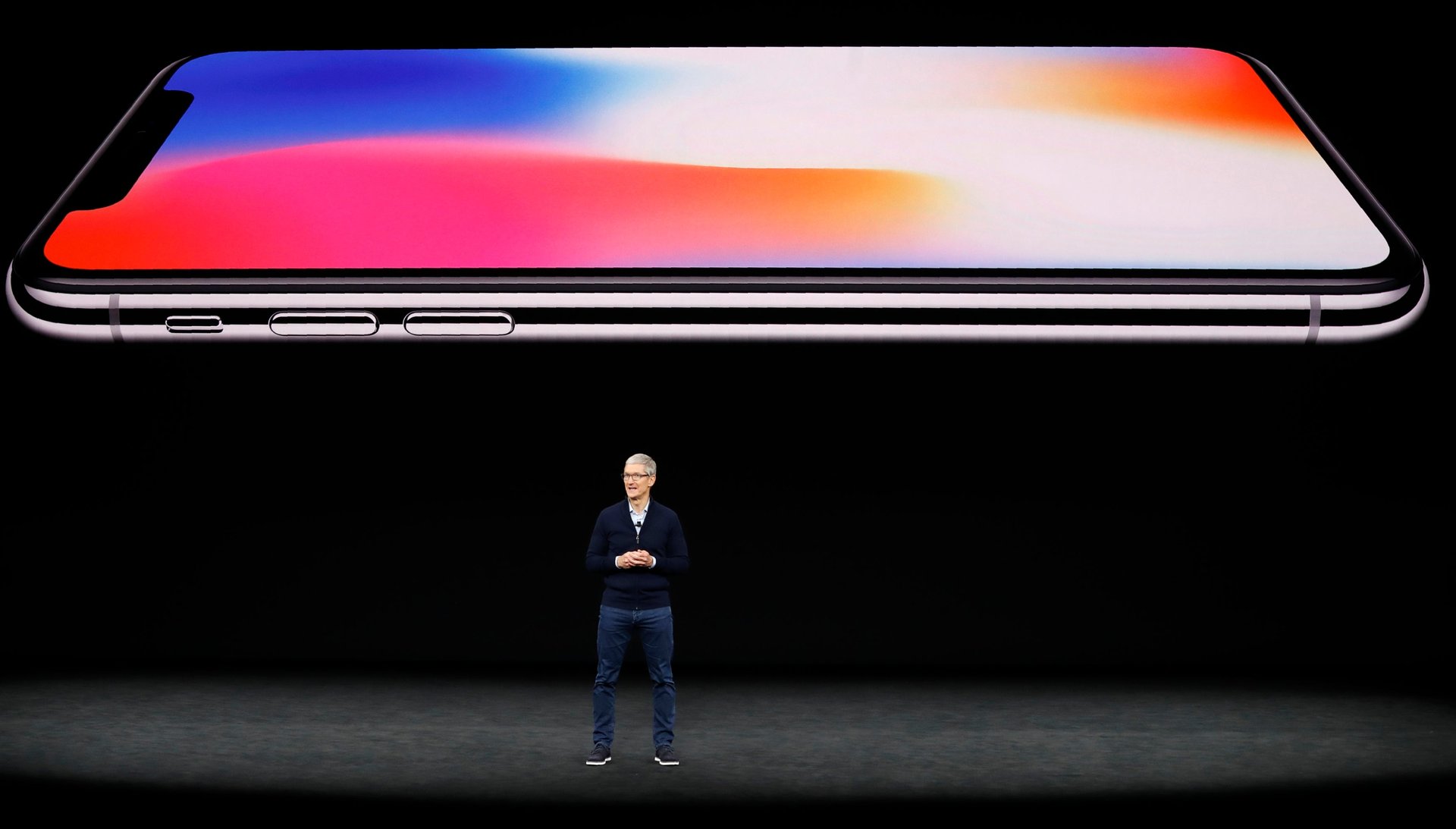Ten things to know about how everyone plans to buy their iPhone X
The best Apple customers continue to buy more products, more often, and more quickly.


The best Apple customers continue to buy more products, more often, and more quickly.
A survey of 1,386 Quartz readers in September and October found that the iPhone X will be the most popular phone among Apple’s latest batch of new products. It also suggested that Apple Watch sales may grow significantly; 15% of iPhone users said they plan to buy a Watch along with a new iPhone. Among other things, our survey showed that iPhone X buyers are more likely to spend more on accessories and services than other iPhone buyers and are more likely to buy directly from Apple.
This is somewhat unsurprising: At a $999 starting price, the iPhone X is the most expensive phone Apple is selling, so those buyers probably have more disposable income in general and are likely to be bigger Apple fans.
Here are 10 takeaways from our survey results.
1. More people plan to buy an iPhone X than an iPhone 8
More than half of those who say they are planning to buy a new iPhone say they are planning to buy an iPhone X. (Note: multiple results were allowed so the total exceeds 100%.)
2. iPhone X buyers are planning to buy faster—more than 70% plan to buy very soon or before the end of the year.
It seems that a lot of people are planning to purchase an iPhone X in the narrow window between first availability on Nov. 3 and the end of the year.
3. More iPhone X buyers are planning to buy direct from Apple—more than half plan to buy direct from Apple vs. about a third of iPhone 8 buyers.
The intent of Apple’s best customers can only be seen as a positive.
4. iPhone X buyers are more frequent buyers—two-thirds buy a new phone at least every two years.
iPhone X is clearly the favorite of the faithful since two-thirds of intended buyers are frequent buyers vs. half of iPhone 8 buyers and a third of iPhone 7 buyers.
5. iPhone X buyers are most likely to upgrade from an iPhone 7 while iPhone 8 buyers are most likely to upgrade from an iPhone 6 or 6s.
Since iPhone X buyers are the most frequent buyers, they are also most likely to be upgrading from an iPhone 7 than an older phone.
6. iPhone X buyers are planning to spend twice as much on accessories and services as iPhone 8 buyers.
Not only are iPhone X buyers spending more on their phones, they are also planning to spend double on accessories and services. What are the planning to buy? See the next chart…
7. One third of iPhone X buyers plan to buy an AirPower, one quarter plan to buy a cellular Watch, and one fifth plan to buy a HomePod.
It seems consumers are embracing a new level of wireless and plan to purchase wireless charging (AirPower) and wireless headset (AirPod) accessories in decent numbers. The attach rate of Watches though could be the biggest story. In our survey, 15% of iPhone users said they planned to buy a Watch along with a new iPhone. Assuming there are 800 million iPhone users…could that mean 120 million Watches sold this cycle? The Quartz readership represents a wealthier demographic than average so that’s likely an aggressive attach rate but it is still a positive indicator for the Apple Watch 3.
8. The most popular reasons to upgrade to either an iPhone X or iPhone 8 are to get a better camera, speed increases, and wireless charging.
Better screen resolution and bigger screen size were also important—especially among older respondents. The least popular reasons to upgrade are augmented reality and FaceID despite Apple’s marketing efforts.
9. “My current phone works fine” is the most popular reason why iPhone users don’t want to upgrade followed by “I don’t want to spend the money right now” and “I plan to buy an Android phone.”
Coupled with the reasons to upgrade, it seems the primary question in people’s mind is: Does my phone work well enough at the moment or do I want something better and faster?
10. Higher income people are more likely to buy an iPhone X.
Perhaps not surprisingly, there is a direct correlation between income and phone purchases: the higher the income, the higher the interest in the most expensive phones.
Notes: The survey of 1,386 Quartz readers across 74 countries was conducted September 28 to October 3, 2017.